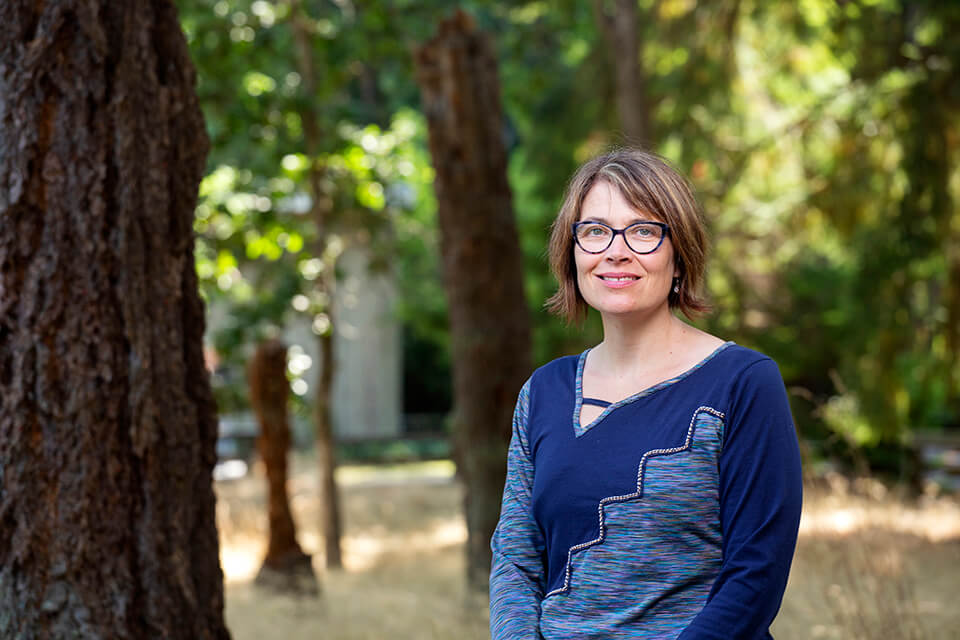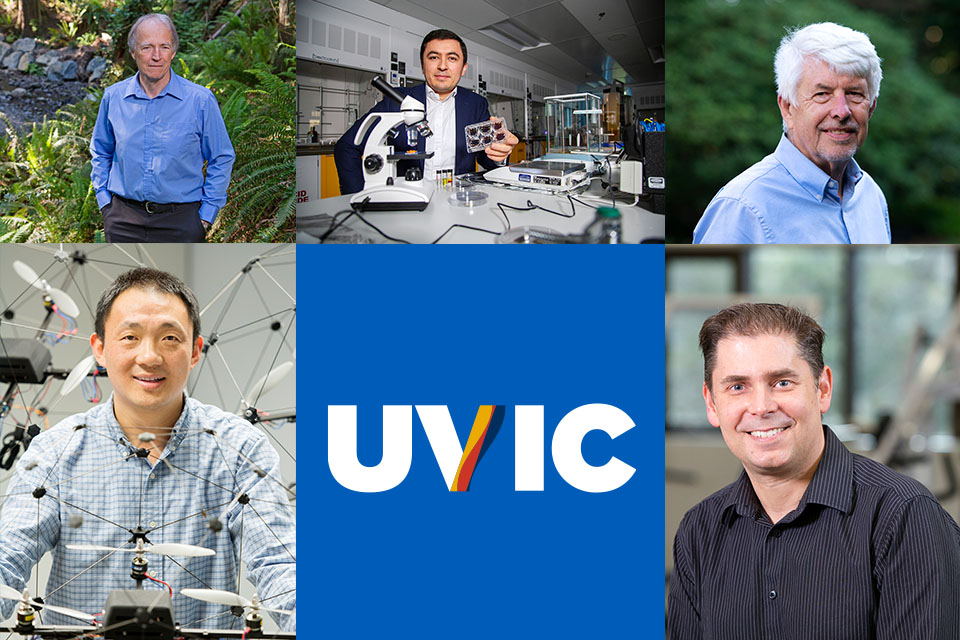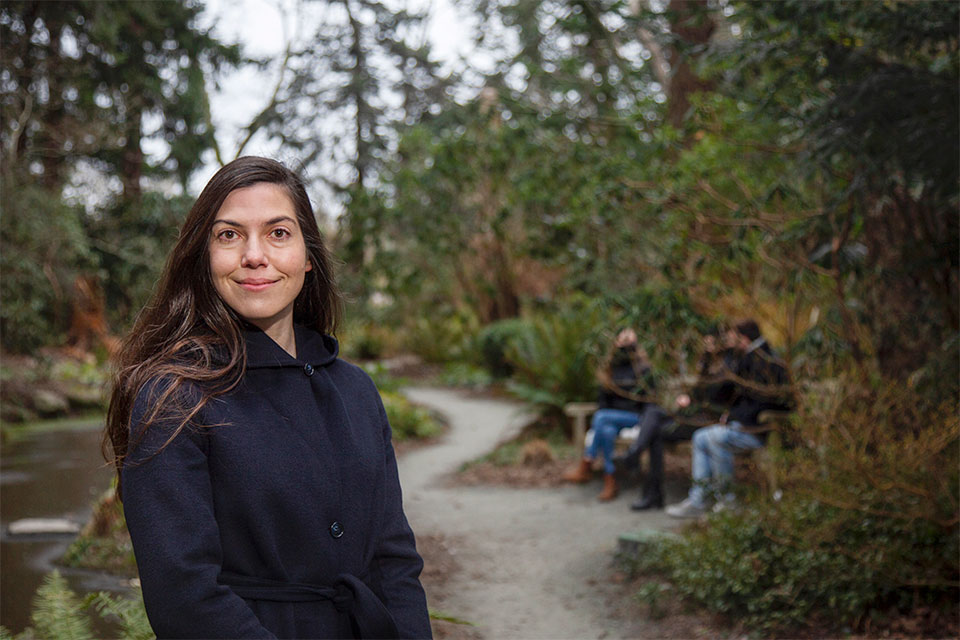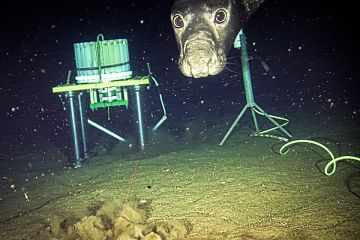Eight UVic researchers are Highly Cited
Social Sciences, Education, Science

The world of research in the sciences is a web that links researchers across disciplines, institutions and international boundaries as they learn from one another while exploring large, complicated problems and solutions. A professor in Germany might cite the work of a peer in Canada, for instance, or a researcher in Japan might reference in their published work the breakthroughs of a counterpart in Spain.
Clarivate’s Web of Science recognizes these citations in scientific publications and announces the annual Highly Cited Researchers—the top one per cent in their respective fields. This year, eight UVic faculty made that elite list of “who’s who” of influential researchers.

Why do/don’t people exercise?
Ryan Rhodes’ research explores people’s motivations for engaging in activity and exercise across the age spectrum, from children and families to the recently retired. The “intention behaviour gap” is often his focus—the difference between, for example, making a new year’s resolution to go to the gym regularly and following through on that resolution.
I’m very interested in health behaviour during life in transition—major life changes and how those relate to health behaviours such as physical activity.
— Ryan Rhodes
Rhodes is a professor and director of UVic’s Behavioural Medicine Laboratory as well as a Fellow of the Canadian Academy of Health Sciences, Distinguished International Affiliate of the American Psychological Society, and a College member of the Royal Society of Canada. “The experience of parenthood, for example, and how that is such a major change in people’s lives and what does it do to their own health, and how does it impact the health of their children.”
His research on parental support for physical activity is cited, as is his work as a co-author on position papers regarding national physical activity guidelines.
Remote controls for complex systems
While Rhodes’ work sits at the intersection of the physical and psychological, Yang Shi is firmly grounded in the mechanical and theoretical. Director of UVic’s Applied Control and Information Processing Laboratory, his focus is on the mathematic models behind the remote control of complex systems. Sometimes, that includes control of unmanned aerial vehicles such as drones or similar vehicles that move underwater—even in space.
But it’s even more complex than sending instructions over great distances and in a variety of conditions.
His research encompasses the theory underpinning large-scale cyber-physical systems such as smart cities or smart communities. For example, in a smart city employing alternative energy sources such as wind and solar, fluctuations in availability of power would be expected due to variable weather conditions; an application for an autonomous system would adjust for those fluctuations, storing electricity when there’s an excess or accessing the conventional power grid when there’s a shortfall without a person having to every move.
We need to pass the latest knowledge on to our next-generation engineers.
— Yang Shi
The Web of Science recognition is not new for Yang, who has earned a bevy of honours for his work, including outstanding teacher awards and UVic’s Craigdarroch Silver Medal for Excellence in Research. And just as he recognizes the value of international collaboration and citation, he’s a proponent of bringing the latest research into the classroom.

Six other UVic faculty recognized as Highly Cited Researchers this year are:
Marine biologist Amanda Bates is an expert in climate change and biodiversity impacts. Her research focuses on climate resilience, marine protected areas and monitoring. Read more here.
Social scientist Robert Gifford is an expert in environmental psychology and the barriers to sustainable behaviour. He studies what it will take to change human behaviour in relation to climate change—“the dragons of inaction”—the reasons why people don’t do more to prevent climate change. Read more here.
Materials scientist Makhsud Saidaminov, Canada Research Chair in Advanced Functional Materials, is uniting chemistry and physics to develop materials for solar energy technologies that are more efficient at harvesting the sun’s energy, and cheaper and safer to produce. Read more here.
Hari Mohan Srivastava is professor emeritas in math and statistics is a familiar name on the Highly Cited Researchers list. Read more here.
Neuroscientist Marie-Ève Tremblay, Canada Research Chair of Neurobiology in Aging and Cognition, is an expert in microglia, the resident immune cells of the brain. Her work explores how microglia can help remodel brain, as well as how these changes affect the cognition of aging individuals and those with neurological disorders. Read more here.
Climatologist Francis Zwiers, director of Pacific Climate Impacts Consortium, enables strategies for better responses to climate change. PCIC science helps decision-makers mitigate risks from sea level rise and events like wildfires, floods and droughts. Read more here.
Clarivate’s 2021 Highly Cited Researchers news release.
Photos
In this story
Keywords: research, administrative, environment, chemistry climate, exercise, robotics, computers, health, technology, psychology, community, international, sustainability, administrative
People: Ryan Rhodes, Yang Shi, Francis Zwiers, Robert Gifford, Makhsud Saidaminov, Amanda Bates, Marie-Ève Tremblay





